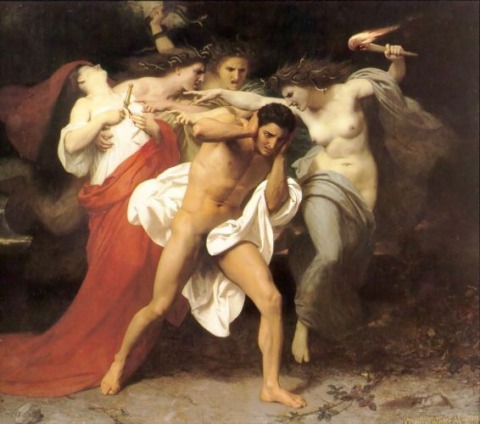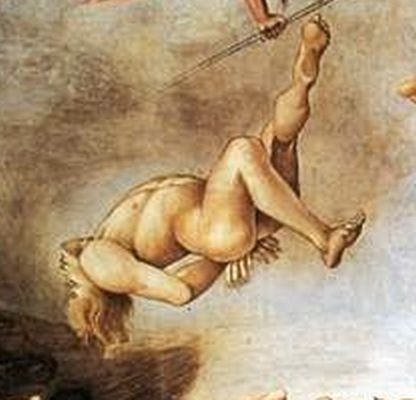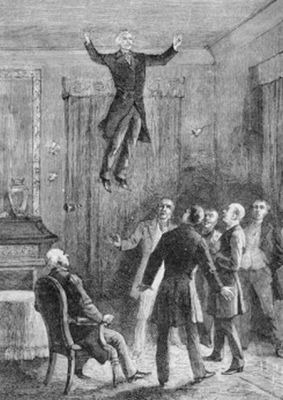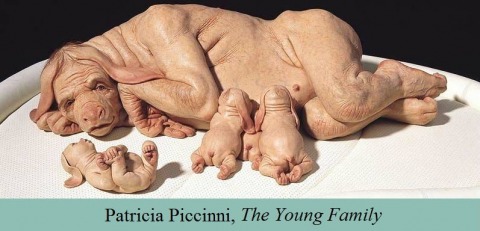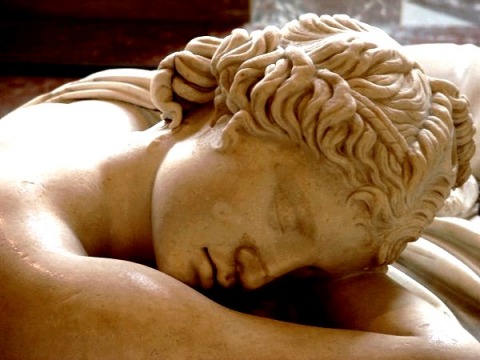
The Underground Thomist
Blog
To Lose God Is to Lose ManMonday, 09-08-2014Kant thought we could either give the law to ourselves, which he called autonomy, or accept a law imposed from outside, which he called heteronomy. In this view, autonomy is freedom, but heteronomy is bondage. What does the picture leave out? John Paul II wrote inVeritatis Splendor that “obedience to God is not, as some would believe, a heteronomy, as if the moral life were subject to the will of something all-powerful, absolute, extraneous to man and intolerant of his freedom .... Others speak, and rightly so, of theonomy, or participated theonomy, since man's free obedience to God's law effectively implies that human reason and human will participate in God's wisdom and providence .... Law must therefore be considered an expression of divine wisdom: by submitting to the law, freedom submits to the truth of creation.” Notice that John Paul speaks not simply of theonomy, which Kant would have regarded as just another heteronomy, but of “participated” theonomy. That is a very different thing. God’s law is not an imposition on us from outside, but an imprint on own rational nature. We are not jerked around by it, but made finite participants in His providential care for the universe. If we refuse to participate, if we decline to accept the privilege, we become not more ourselves and more free, but less ourselves and less free. To deny Him is to deny man as well.
|
The Revenge of ConscienceSunday, 09-07-2014
“Why did the slaveholders act as if driven by the Furies to their own destruction? ... Why did they take such risks, why did they persist beyond prudent calculation? The answer must be that in a moral question of this kind, turning on basic concepts of humanity, you cannot be content that your critics are feeble and ineffective, you cannot be content with their practical tolerance of your activities. You want, in a sense you need, actual acceptance, open approval. If you cannot convert your critics by argument, at least by law you can make them recognize that your course is the course of the country.” -- John Thomas Noonan, A Private Choice (1979) Does that phenomenon sound familiar?
|
Look Before You LeapSaturday, 09-06-2014
"Suppose we agree with the Supreme Court's new gospel that there is a right enshrined in the Constitution to make intimate and personal sexual decisions .... If I were a stereotypical lawyer, I would gleefully contemplate our new divorce laws. Thing of the fees I could charge litigating cases such as these: Can Wife #2 claim visitation privileges with the children of Husband and Wife #4 on the grounds that an emotional bond had arisen within the context of the progressive family? How is Husband #3's pension to be divided between himself and the two other husbands who want to remain married to Wife? If Wife #1, who was barren, prevailed on Wife #2 to have Husband's child, are both Husband and Wife #1 to pay child support when Wife #2 wants out of the marriage?” -- Ian A.T. McLean, “Criminal Law and Natural Law" |
The Wrong Way to Believe a PropositionFriday, 09-05-2014
A churchgoing colleague explained to me once that his personal rule of faith is to believe whatever doctrine is the most “uplifting.” He tells me that he finds it more uplifting to believe in reincarnation than in death, judgment, and resurrection, because it “gives us as many chances as we need to get it right.” Though I’m told they are legion, I don’t happen know many other people who share his belief in reincarnation. But I frequently encounter his underlying attitude, which has two main features. Its first feature is not to think clearly. His attitude is not just wishful thinking; it is thoughtless wishing. Historically, millions have found the prospect of rebirth after rebirth a better reason for despair than rejoicing. Buddhism was founded to provide an escape from the Wheel of Becoming. Its second feature is to separate the question of whether to believe something from the question of whether it is true. This can’t even be done without doublethink, for isn’t regarding something as true what it means to believe it? |
Why a Progressive Technocracy Would Be the Cruelest TechnocracyThursday, 09-04-2014
The warlords, satraps, and barons of ancient times visited cruel burdens upon the underclass, but there was a natural limit to what they could do. Though a man could be treated like a dog, in the end a man was a man, and a dog was a dog. We are entering an age in which, if the line of development is not broken, our rulers will not recognize natural limits to what they can do. Viewing nature as an unnatural obstacle, they will set themselves against it. If they can treat a man more like a dog by stitching a few dog genes into him, they will try to do it, and say they are improving the human stock. |
Pretty Good Retort to DescartesWednesday, 09-03-2014"If I cannot be certain, then what is the use of thinking or believing anything?" ... is an evasive way of saying "Since I cannot be God, I refuse to be man." -- Mary Shideler, Theology of Romantic Love |
So Full of SleepTuesday, 09-02-2014
Philosopher David Benatar made ripples several years ago with his book Better Never to Have Been. The author maintains that in view of the pain, disappointment, anxiety, and grief of life, our parents did us harm by bringing us into existence. Some might say that Benatar’s argument takes utilitarianism to its logical conclusion. Others might view it as bringing this dreadful doctrine to its just deserts. In the spirit of Pascal, Pensées, sec. 194, I think we might think of Benatar as follows. The poor man does not know who made him, what the world is, or what he is himself. He does not know why he has been placed in this point in the chasm of space rather than in another, or why he has been assigned to live at this moment in eternity rather than in all the ages that have come before and may come after him. He does not know what his body is, nor what his mind is, nor even that part of him which reflects on all these things and is as ignorant as they. In this condition of dread, he reflects that not all our earthly joy can sponge away a single sorrow. Yet, finding himself at this final extremity, at the end of all things, what is his response? Can a greater folly be imagined? For does he, with every resource he commands, seek to learn what the riddle means? Does he pursue the fleet prey of the solution with even as much diligence as a hound lends to chasing a coon? No, he does the lazy thing. He writes a book. Lining it with his despair about living, he fills it with mitigating advice, such as to abort one’s children early. Curiously, along the way he finds that even though life is full of tears, he does not want to die. Yet not even this most wondrous and luminous clue is enough to rouse him from slumber. Dante, who midway upon the journey of his life had found himself in a dark wilderness, understood the plight well. How I had entered, I can’t bring to mind, I was so full of sleep at just that point when I first left the way of truth behind. -- Translation of Inferno, Canto 1, lines 10-12, by Anthony Esolen |
